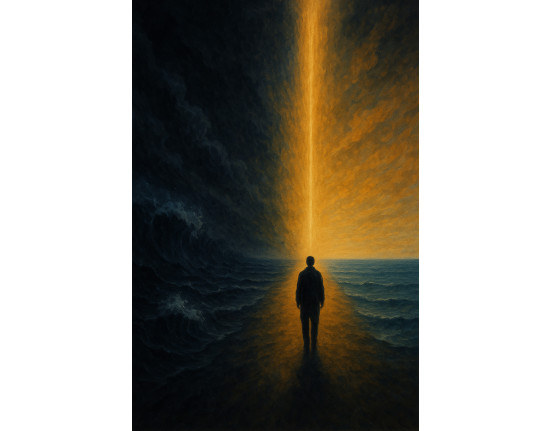Someone passes by you without saying hello.
All too familiar, isn’t it? What’s your reaction? I’m sure each of us has a
different one. For some – indifference. For others, discomfort. And for some – real
pain. A single moment can awaken a whole palette of emotions, thoughts, and
reactions. Why?
Here we dive beneath the surface of the ocean
– into the massive iceberg of our subconscious. Yes, an iceberg! And this very
colossus governs about 95% of our behavior. Imagine that: 95% of your life
unfolds under the influence of the subconscious mind! It contains everything – experience,
memories, emotions, reactions, habits, and most importantly, beliefs and mental
programs. Let’s focus on the latter.
Our tirelessly working brain is,
paradoxically, extremely lazy. It doesn’t want to analyze everything anew each
time. But this laziness serves us – it protects us from pain. The human being
always subconsciously avoids pain. Events occur, certain thoughts arise, and
the brain finds them appealing – so appealing that it begins to believe them as
absolute truths, turning them into rules (installations or “programs”). These
rules become subconscious instructions for safety and survival.
From that moment, the program starts running
automatically, guiding our reactions and decisions – like an invisible filter
between reality and perception. In other words, we see the world not as it is,
but through the prism of our beliefs and inner codes. And often, they distort
and limit us. Every time we face a similar situation, the old program activates
faster than our conscious mind can even notice. That’s why we often know
one thing – yet do another.
Let’s return to our example. Someone didn’t
greet you:
“They don’t respect or notice me.”
This program is rooted in early childhood, in
moments insignificant to adults but catastrophic to a child: a tired mother
doesn’t respond to a smile; a father doesn’t glance at a drawing; adults are
too busy to reply. The child concludes: I’m not important. I don’t exist. I
must earn attention. Later, this grows into a heightened sensitivity to
neglect – one unreturned greeting, and pain arises inside.
“I did something wrong.”
As children, even when we did something good,
adults could react negatively – not to the essence, but to the form. A child
sings – the parent says, “Too loud.” Tries to help wash the floor – “Why did
you make such a mess?” And so the brain learns: If someone is displeased,
it’s my fault. We learn to see guilt in everything. Every time someone
doesn’t smile or greet us, the brain triggers: I must have done something
wrong.
“Don’t show that it hurts.”
When, in early experiences, expressing
feelings led to shame, mockery, or punishment – “Don’t cry!”, “Don’t be weak!”,
“Stop being silly!” – a protective shell forms. Now, when someone doesn’t greet
us, that old ban instantly activates: Don’t let it show that you’re hurt.
Consciousness says, “It’s nothing, don’t pay attention,” but the body has
already tightened – pain is there, hidden under control.
“People are rude and ungrateful.”
Accumulated disappointment in others teaches
us to keep a distance – it feels safer that way. But irritation and emotional
detachment only grow, and the pain remains unresolved.
So many reactions – from such a simple,
everyday event. In these moments, life gently highlights an old code so that we
can see what still reacts automatically within us.
And here it’s crucial to draw the right
conclusions:
Be attentive to others. You never know how the
smallest detail of your behavior might affect someone, perhaps causing
unnecessary pain.
Remember: in delicate situations, our
subconscious programs and blocks are the first to react. Notice them, observe
them, and gradually transform your perception – separating the present from the
past.
And if it doesn’t work right away – seek
guidance.
At the end of the day, every moment spent working on yourself is a great mitzvah!



















